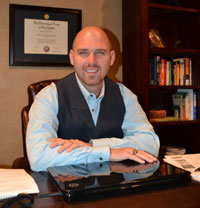The demands and constraints on secondary educators means that it can be difficult to provide students with all of the vital skills needed for college success. This is the mission of the Texas Regional Alignment Network, which will be holding its second annual College and Career Readiness Symposium on June 25th in San Antonio, TX, to bridge the gap between what is taught in high school and college.
It is a collaboration between secondary and post-secondary educators from multiple content areas to find strategies for integrating a greater number of skills into lessons, such as making inferences and conveying evidence-based research through writing, which will better prepare high school students for college.
For instance, history is one of the content areas that will be focused on at the symposium and a challenge for students in a higher education history course is learning to analyze material in order to come to their own conclusions.
A student may know when the Civil War began or that the 13th Amendment abolished slavery. However, the goal should be for them to connect that the coloniesí need for labor would become the origins of the southís ideology that led to the war. That ideology did not end in 1865 and its perpetuation left many African Americanís in poverty, segregated schools, and cities far into the 20th century.
Students may then make a more generalized inference, such as often one cannot separate economic, ideological, and political factors and that they transcend specific eras. The hope is that when students can find these connections and conclusions early, they will be more apt to do so with relative independence in the future.
Conducting evidence-based research is another area in which first year college students often lack experience. This knowledge of how to form a thesis and find peer reviewed sources to corroborate it remains important. But there is also a need to convey the practical purpose to students. Research is done to find the truth; a cure for disease, a more productive method for teaching, or a way to streamline business transactions, for example. In a history course it may be to understand how a false narrative led many in the past to believe the Civil War was not fought over slavery, when slavery was the true catalyst.
Yet, these fundamental skills not only transcend any one discipline, they are one of the elements that will assist students in differentiating themselves in their future profession, which lends itself to greater success. Few individuals would ignore an asset that would equate to more money. Convincing students of this will have a positive effect on engagement and result in a better prepared student for the rigorous assignments in college, as well as life.
Luckily, many educators from surrounding colleges and school districts agree there needs to be a closer alignment that prepare students for the next level and have answered the call to work towards that goal. As participation grows each year in partnerships such as these, unboundedly so will student success.
